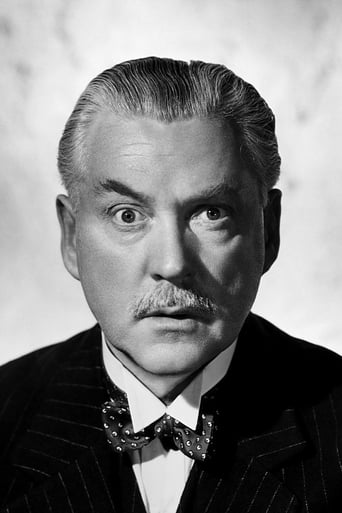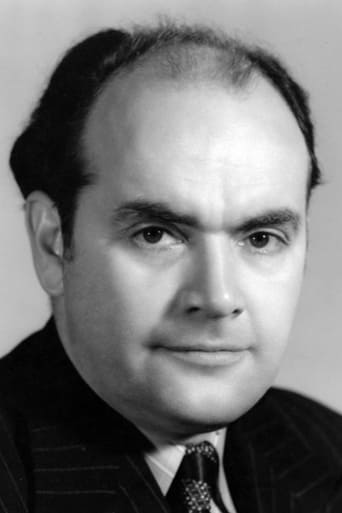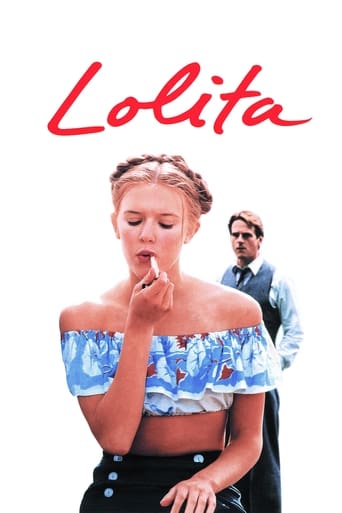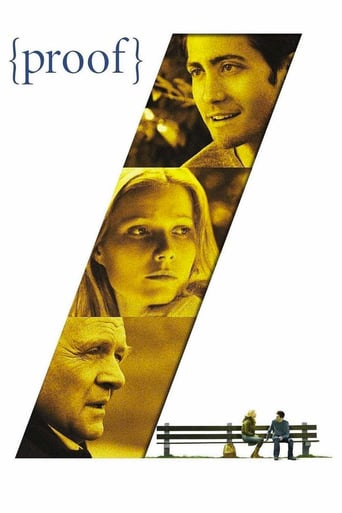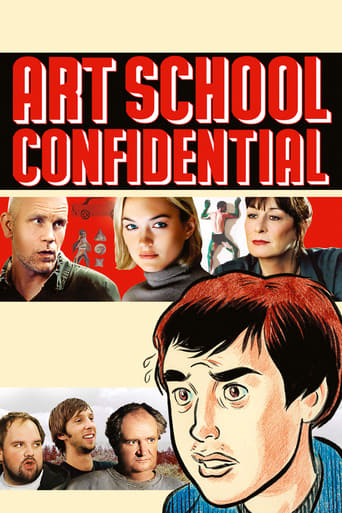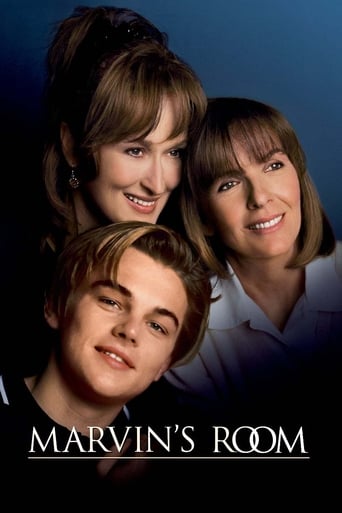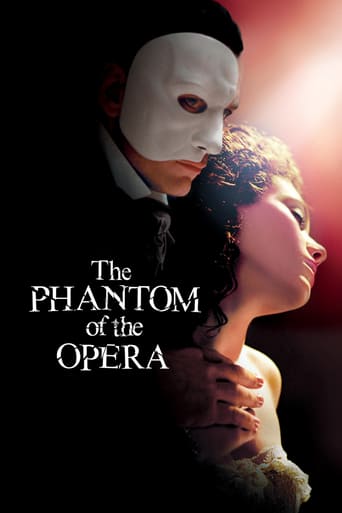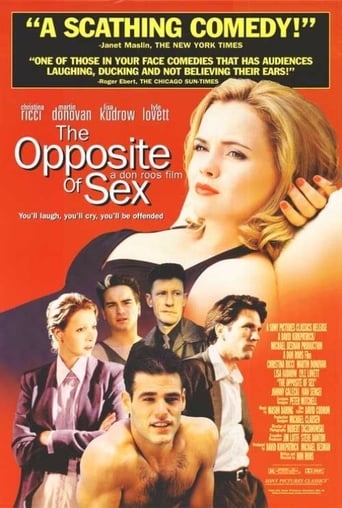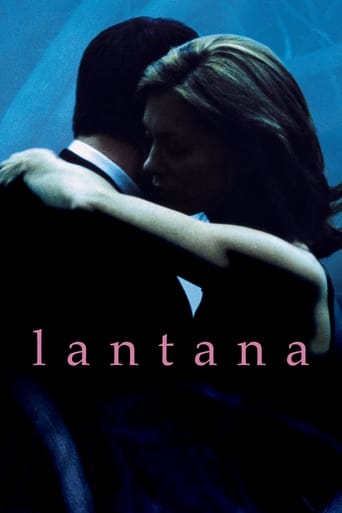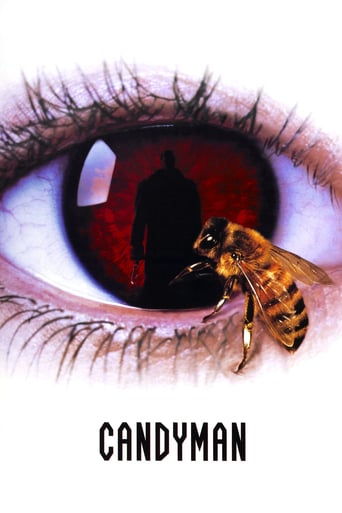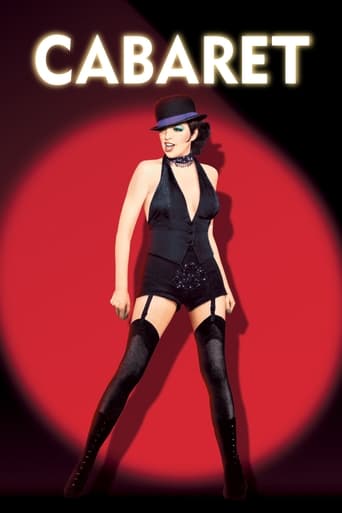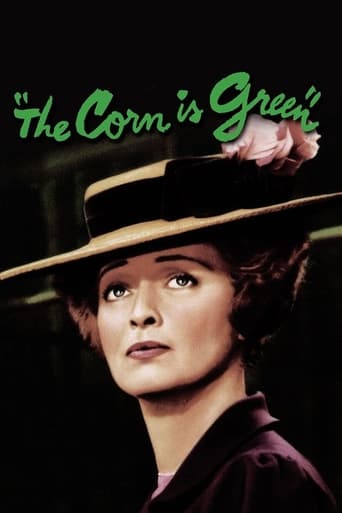
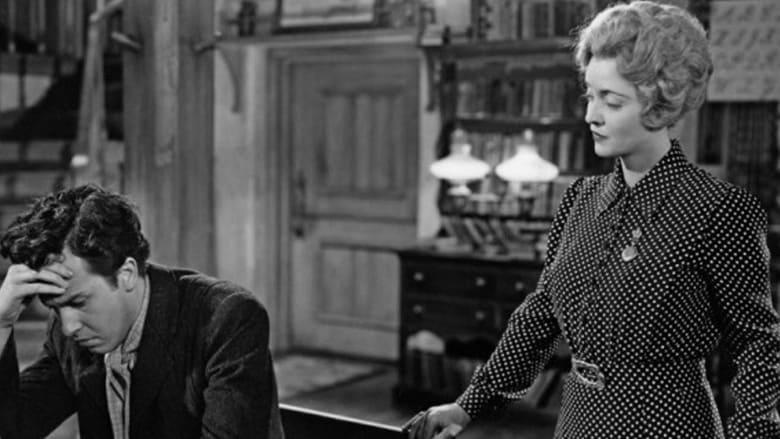
The Corn Is Green (1945)
When a teacher reads an essay written by Morgan Evans, one of the boys, moved by his rough poetry she decides to hold classes in her house and believes that Morgan is smart enough to attend Oxford.
Watch Trailer
Cast


Similar titles
Reviews
I profess that I have a love for good films about teaching. This one stars Bette Davis as Lilly Moffatt, a spinster schoolteacher, whose desires for elevating the minds of young people who are destined to a life of coal mining in a Welsh community, becomes focused on the promising talents of Morgan Evans, a young man who shows a spark of superior intellect.Miss Davis is well suited to her role, a woman of restrained passions. While watching her, there are moments when I sense similarities with the acting style of Meryl Streep.The rest of the cast is quite good. John Dall, in his film debut, plays Mr. Evans. It is an inspired performance that earned an Academy Award nomination. Based upon a true story, TCIG invites comparisons to "My Fair Lady" and, especially, "Spencer's Mountain" in regard to the central story about molding a young mind. I have one criticism. The singing vocals are so strong that they are distracting. A small group of young, work-weary miners should not sound like the men's chorus at the Met, for example. Miss Moffatt might be seen by some as selfless in her dedication to higher principles. She denies herself of so much in her pursuit of education. But hers is a selfish campaign for transformation-of a man, a town, perhaps a country. She trades something of lesser value for something of greater value, so she does not sacrifice, even in her final dramatic decision. And it is her pursuit of a greater purpose that gives her story nobility. And the pleasure she finds in her achievements can only be seen as justifiable and virtuous.
. . . to an alleged Oscar "Best Picture" foisted off upon the World by Fake Movie News Pioneer Darryl F. Zanuck of 20th Century Fox. Zanuck had commissioned future Real Life Witch Hunter director John Ford to romanticize the Deplorable Lot of Welsh coal miners and to glorify Big Coal (which was and is, Then, Now, and Always, the world's most unnecessarily dangerous and poorly Unionized Worker Exploitation Racket among the many scams run by Labor-killing Corrupt "Conservative" Capitalism). After rigging an election to bestow Tinseltown's highly-coveted Gelded Statuette upon the mawkish HOW GREEN WAS MY VALLEY, Zanuck and Fox insured a minimum of 100,000 MORE Coal Miner Murders World-Wide, according to a recent Socioeconomic Report. Zanuck smugly thought that HIS would be Cinema's Last Word about Coal. However, it did not take long for Warner Bros. to courageously cast its most famous Progressive Party Activist--Bette Davis--as a Hellcat Heroine fighting against the Coal Killer Realities glossed over by Ford's Fakey Fairy Tale. Davis' character in THE CORN IS GREEN, Miss Moffatt, is NOT content to sit on her Welsh Tuffet, frittering her curds a whey. Instead, she charges into the Coal Pit, dragging out miner Morgan Evans kicking and screaming until she's smoothed away the rough edges of his 40-carat diamond mind. "Make the light come into the dingy, black-dust tunnels, and some day save the children!" Moffatt orders Morgan as she sends him off to Crusade against Big Coal Flaks like Zanuck and Ford.
When Miss Moffat arrives in a small rural Welch community to start a school for both young and old, at first she is met with some resistance. But before she even has all of her books unpacked, the classes are packed, and practically everybody in the community is anxious to learn to read and write. She finds one particularly gifted student (John Dall) whom she tutors on the side, sure he is smart enough to pass an exam for a scholarship to Oxford. But the trashy Joan Loring, a train wreck waiting to happen, has her eyes on Dall, much like Delilah did on Samson. This threatens to destroy Dall's chances for a bright future, which is something that the tough Miss Moffat can't allow to happen.The hit Broadway play (by Emlyn Williams) was a triumph for the legendary Ethel Barrymore, but for the screen, Warner Brothers cast the younger Bette Davis. I don't think it is necessary to explain why, but in the mid 1940's, Davis was the Queen of Cinema, much like Ms. Barrymore was the Queen of the Theatre (or at least one of many). Not afraid to age herself (as proved in the previous year's "Mr. Skeffington"), Davis does make herself look more matronly than her 35 years. Her voice here has become what the imitators mimic, so at times, the performance does seem a bit more mannered and less subtle. The Oscar nominations went to Dall and Loring, even though they never went onto become household names. Loring's character is probably one of the most vicious young women ever on screen, sort of a grown-up version of "These Three's" Bonita Granville. Her passive/aggressive sweetness has a tinge of acid in it, and when she finally explodes, she reminds me of Davis's Mildred in "Of Human Bondage". Dall's performance is much subtler, as his role gives him the chance to let the character grow from uneducated hick to a young man with much promise ahead of him.Outstanding production design makes this an attractive film to look at, and it is fascinating to watch unwind. In smaller roles, Nigel Bruce, Mildred Dunnock, Rhys Williams and Rosalind Ivan shine; Ivan's character (Loring's mother who amusingly admits she can't stand her own daughter!) has a final up there with the Margaret Hamilton slap that Granville got in "These Three". There is a bit of late war patriotism propaganda here as Davis's final speech on what Dall must focus on now that he's moving to a new life seems to be a plea for the young men of America to strive to move past their potential.
In comparison to past and her performances after 1945, Bette Davis gave a restrained but compelling performance as the schoolteacher in a Welsh town who wants to improve the education of the town's children (already mostly miners in "The How Green Was My Valley" vein) through education.In this wonderful performance, I see elements of Davis's "The Little Foxes" as well as her 1944 film "Mr.Skeffington."Leave it to Davis to find a brilliant student, a terrific John Dall, in her midst. The problem is that Dall is a drinker who feels he is betraying his fellow miners in pursuing an education. The maid's daughter, Bessie, played with evil intent by a fabulous Joan Loring, gets into trouble thanks to Dall, and she threatens to ruin all concerned. The end, where Davis agrees to take the unborn child and raise it herself, while vowing never to see Dall again, may be regarded today as corny but is well done.This film is memorable because of its depiction of class structure and the opportunity for upward mobility. Both Dall and Loring received Oscar nominations in the supporting categories but Davis was denied a best actress nomination here which is somewhat surprising.Mildred Dunnock and Rhys Williams costar as teachers in Ms. Moffat's school. Dunnock, so young here, but displays the same vulnerability as Elsie Thornton in 1957's "Peyton Place."



